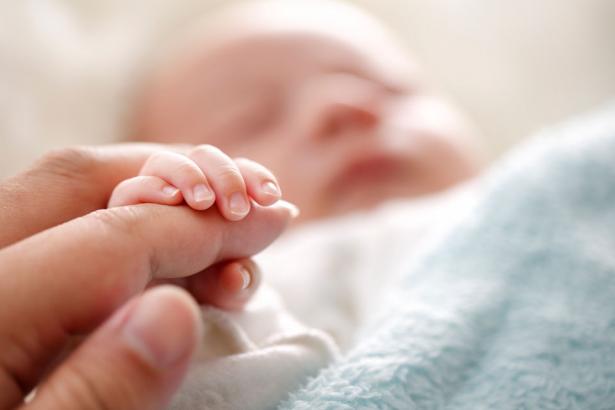Gov. Phil Murphy signed into law Tuesday an extensive expansion of New Jersey’s 10-year-old paid family leave program, allowing workers in the state to take off more time to care for a newborn or sick relative and to collect a larger piece of their pay while on leave.
The program’s overhaul was sought after by progressive advocates who said its payouts were too low and many low- and middle-income families still could not afford to take time away from their jobs.
Murphy said the “temporary loss of a paycheck because of the need to care for a loved one can be a daunting and stress-inducing hurdle" for those families.
“But paid family leave can be vital in allowing them to focus their attention on where it is most needed: on their family,” the Democratic governor said before signing the law at JFK Library in Piscataway.
In 2009, New Jersey became the second state, behind California, to enact paid family leave. But in recent years, researchers have found that too few workers knew the benefits were even available and the reimbursements needed to be raised to boost enrollment.
A 2017 study found just 12 percent of New Jersey’s eligible new parents were receiving family leave benefits. In its first seven years, family leave insurance paid out nearly half a billion dollars in benefits on more than 200,000 claims. About eight in 10 claims were for maternity leave, while two in 10 were to take care of a family member.
Right now, new parents or caregivers can receive up to six weeks of benefits equal to two-thirds of their pay, but capped at $633 a week. A worker making $15 an hour, or $600 a week, receives $400 a week in wage replacement under those rules.
Starting July 1, 2020, eligible workers will be able to receive 80 percent of their wages — up to $860 — for 12 weeks.
New Jersey Working Families, a liberal Trenton think tank, said that raising the wage cap would help out middle-class families, while raising the two-thirds limit on wage replacement would help lower-income families.
Siblings, grandparents, grandchildren and parents-in-law also are now newly covered as caregivers, effective immediately. Caregivers may also qualify for benefits to care for a family member who is a victim of domestic or sexual violence. Previously, only children, parents, spouses, domestic partners and civil union partners qualified.
Lt. Gov. Sheila Oliver, a sponsor of the original paid family leave law when she was a member of the state Assembly, said the timing of the update is crucial as Baby Boomers get older.
“We are going to need children and aunts and uncles and extended family members to take care of people,” Oliver said at Tuesday’s event. “The worst thing in the world is having a family member who is ill and you are not able to spend time with them.”
State Assemblywoman Annette Quijano, D-Union, a main sponsor of the new law, said this issue is important to her because two of her grandparents were hospitalized and her family had to figure out how to make time to be with them.
“This can actually break up families,” Quijano said at Tuesday’s event. “Who gives the time? Who doesn’t? Who has that flexibility?”
As of June 30, the new law will also confer job protections to employees of businesses with at least 30 employees, down from 50.
It also sets aside $1.2 million to advertise and promote the paid leave program.
The nonpartisan state Office of Legislative Services estimates insurance claims paid out will increase by $277 million to $363 million a year once the expansion is fully implemented.
Former Gov. Chris Christie, a Republican, vetoed a similar bill in 2017, saying that the cost of the expansion would be too much to bear for New Jersey workers. Republican lawmakers had similar concerns when the Democrat-controlled state Legislature passed this bill last month.
The program is funded through a small payroll deduction paid by every New Jersey worker. As of Jan. 1, every worker is contributing on their first $34,400 in wages, or a maximum of $27.52 a year. This law adjusts the formula for calculating the deduction to tax the first $131,000 in wages. It’s not clear exactly how much more those working in New Jersey would pay because the rate is changed each year to meet the program’s needs.
“Today, we send a very clear message that family matters,” Assembly Speaker Craig Coughlin, D-Middlesex, said Tuesday.
Samantha Marcus may be reached at smarcus@njadvancemedia.com. Follow her on Twitter @samanthamarcus. Find NJ.com Politics on Facebook.
Brent Johnson may be reached at bjohnson@njadvancemedia.com. Follow him on Twitter @johnsb01.


Spread the word